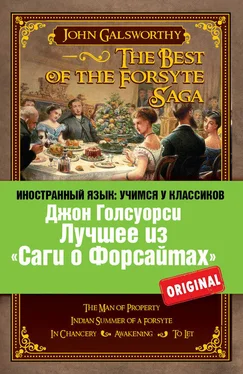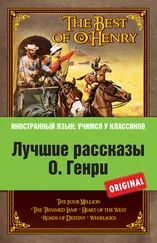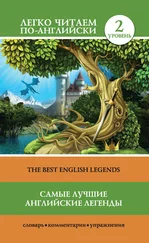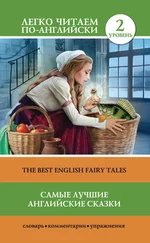Джон Голсуорси. Лучшее из «Саги о Форсайтах» / The Best of The Forsyte Saga by John Galsworthy
“……..You will answer
The slaves are ours…..”
– Merchant of Venice.
Chapter I
‘At Home’ at Old Jolyon’s
Those privileged to be present at a family festival of the Forsytes have seen that charming and instructive sight – an upper middle-class family in full plumage. But whosoever of these favoured persons has possessed the gift of psychological analysis (a talent without monetary value and properly ignored by the Forsytes), has witnessed a spectacle, not only delightful in itself, but illustrative of an obscure human problem. In plainer words, he has gleaned from a gathering of this family – no branch of which had a liking for the other, between no three members of whom existed anything worthy of the name of sympathy – evidence of that mysterious concrete tenacity which renders a family so formidable a unit of society, so clear a reproduction of society in miniature. He has been admitted to a vision of the dim roads of social progress, has understood something of patriarchal life, of the swarmings of savage hordes, of the rise and fall of nations. He is like one who, having watched a tree grow from its planting – a paragon of tenacity, insulation, and success, amidst the deaths of a hundred other plants less fibrous, sappy, and persistent – one day will see it flourishing with bland, full foliage, in an almost repugnant prosperity, at the summit of its efflorescence.
On June 15, eighteen eighty-six, about four of the afternoon, the observer who chanced to be present at the house of old Jolyon Forsyte in Stanhope Gate, might have seen the highest efflorescence of the Forsytes.
This was the occasion of an ‘at home’ to celebrate the engagement of Miss June Forsyte, old Jolyon’s granddaughter, to Mr. Philip Bosinney. In the bravery of light gloves, buff waistcoats, feathers and frocks, the family were present, even Aunt Ann, who now but seldom left the corner of her brother Timothy’s green drawing-room, where, under the aegis of a plume of dyed pampas grass in a light blue vase, she sat all day reading and knitting, surrounded by the effigies of three generations of Forsytes. Even Aunt Ann was there; her inflexible back, and the dignity of her calm old face personifying the rigid possessiveness of the family idea.
When a Forsyte was engaged, married, or born, the Forsytes were present; when a Forsyte died – but no Forsyte had as yet died; they did not die; death being contrary to their principles, they took precautions against it, the instinctive precautions of highly vitalized persons who resent encroachments on their property.
About the Forsytes mingling that day with the crowd of other guests, there was a more than ordinarily groomed look, an alert, inquisitive assurance, a brilliant respectability, as though they were attired in defiance of something. The habitual sniff on the face of Soames Forsyte had spread through their ranks; they were on their guard.
The subconscious offensiveness of their attitude has constituted old Jolyon’s ‘home’ the psychological moment of the family history, made it the prelude of their drama.
The Forsytes were resentful of something, not individually, but as a family; this resentment expressed itself in an added perfection of raiment, an exuberance of family cordiality, an exaggeration of family importance, and – the sniff. Danger – so indispensable in bringing out the fundamental quality of any society, group, or individual – was what the Forsytes scented; the premonition of danger put a burnish on their armour. For the first time, as a family, they appeared to have an instinct of being in contact, with some strange and unsafe thing.
Over against the piano a man of bulk and stature was wearing two waistcoats on his wide chest, two waistcoats and a ruby pin, instead of the single satin waistcoat and diamond pin of more usual occasions, and his shaven, square, old face, the colour of pale leather, with pale eyes, had its most dignified look, above his satin stock. This was Swithin Forsyte. Close to the window, where he could get more than his fair share of fresh air, the other twin, James – the fat and the lean of it, old Jolyon called these brothers – like the bulky Swithin, over six feet in height, but very lean, as though destined from his birth to strike a balance and maintain an average, brooded over the scene with his permanent stoop; his grey eyes had an air of fixed absorption in some secret worry, broken at intervals by a rapid, shifting scrutiny of surrounding facts; his cheeks, thinned by two parallel folds, and a long, clean-shaven upper lip, were framed within Dundreary whiskers [1]. In his hands he turned and turned a piece of china. Not far off, listening to a lady in brown, his only son Soames, pale and well-shaved, dark-haired, rather bald, had poked his chin up sideways, carrying his nose with that aforesaid appearance of ‘sniff,’ as though despising an egg which he knew he could not digest. Behind him his cousin, the tall George, son of the fifth Forsyte, Roger, had a Quilpish [2]look on his fleshy face, pondering one of his sardonic jests. Something inherent to the occasion had affected them all.
Seated in a row close to one another were three ladies – Aunts Ann, Hester (the two Forsyte maids), and Juley (short for Julia), who not in first youth had so far forgotten herself as to marry Septimus Small, a man of poor constitution. She had survived him for many years. With her elder and younger sister she lived now in the house of Timothy, her sixth and youngest brother, on the Bayswater Road. Each of these ladies held fans in their hands, and each with some touch of colour, some emphatic feather or brooch, testified to the solemnity of the opportunity.
In the centre of the room, under the chandelier, as became a host, stood the head of the family, old Jolyon himself. Eighty years of age, with his fine, white hair, his dome-like forehead, his little, dark grey eyes, and an immense white moustache, which drooped and spread below the level of his strong jaw, he had a patriarchal look, and in spite of lean cheeks and hollows at his temples, seemed master of perennial youth. He held himself extremely upright, and his shrewd, steady eyes had lost none of their clear shining. Thus he gave an impression of superiority to the doubts and dislikes of smaller men. Having had his own way for innumerable years, he had earned a prescriptive right to it. It would never have occurred to old Jolyon that it was necessary to wear a look of doubt or of defiance.
Between him and the four other brothers who were present, James, Swithin, Nicholas, and Roger, there was much difference, much similarity. In turn, each of these four brothers was very different from the other, yet they, too, were alike.
Through the varying features and expression of those five faces could be marked a certain steadfastness of chin, underlying surface distinctions, marking a racial stamp, too prehistoric to trace, too remote and permanent to discuss – the very hall-mark and guarantee of the family fortunes.
Among the younger generation, in the tall, bull-like George, in pallid strenuous Archibald, in young Nicholas with his sweet and tentative obstinacy, in the grave and foppishly determined Eustace, there was this same stamp – less meaningful perhaps, but unmistakable – a sign of something ineradicable in the family soul. At one time or another during the afternoon, all these faces, so dissimilar and so alike, had worn an expression of distrust, the object of which was undoubtedly the man whose acquaintance they were thus assembled to make. Philip Bosinney was known to be a young man without fortune, but Forsyte girls had become engaged to such before, and had actually married them. It was not altogether for this reason, therefore, that the minds of the Forsytes misgave them. They could not have explained the origin of a misgiving obscured by the mist of family gossip. A story was undoubtedly told that he had paid his duty call to Aunts Ann, Juley, and Hester, in a soft grey hat – a soft grey hat, not even a new one – a dusty thing with a shapeless crown. “So, extraordinary, my dear – so odd,” Aunt Hester, passing through the little, dark hall (she was rather short-sighted), had tried to ‘shoo’ it off a chair, taking it for a strange, disreputable cat – Tommy had such disgraceful friends! She was disturbed when it did not move.
Читать дальше
Конец ознакомительного отрывка
Купить книгу

![Автор неизвестен Эпосы, мифы, легенды и сказания - Самые лучшие английские легенды [The Best English Legends]](/books/34729/avtor-neizvesten-eposy-mify-legendy-i-skazaniya-s-thumb.webp)










